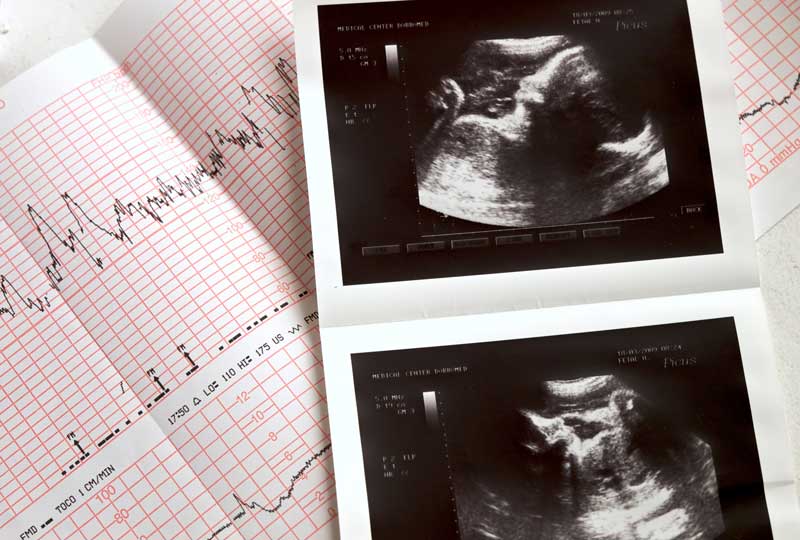What to expect during pregnancy with congenital heart disease — from family planning through delivery.
If you have congenital heart disease, you may have many questions surrounding family planning and pregnancy. Is it OK to get pregnant? What are the risks for you or your unborn baby? Will you have to stop or switch medications? And what are the risks that your child will also have congenital heart disease?
“Often women have been given the impression that they shouldn’t ever become pregnant if they were born with a congenital heart defect,” said Dr. Kathryn Lindley of Vanderbilt’s Adult Congenital Heart Disease Program. “But the majority of women who were born with congenital heart disease can safely carry a pregnancy.”
It’s true that both the mother-to-be and baby-to-be are at an increased risk for complications when a pregnant patient has congenital heart disease. “However, the good news is that when these patients are cared for by a team of doctors — including congenital heart disease specialists and maternal fetal medicine specialists — at a center that has a lot of experience in taking care of complicated congenital heart disease patients, most moms and babies have good outcomes,” Lindley said.
Additional monitoring
Heart rhythm issues are the most common heart-related concern pregnant patients with congenital heart disease have during pregnancy. These are not typically life-threatening concerns, but they may require medication or, in rare cases, other interventions. Fluid retention, shortness of breath and blood clots are additional possibilities. Your care team will monitor you closely for all potential issues and treat accordingly if they occur.
“We take a very individualized approach to each mom based on her specific heart needs,” Lindley said. “And based on her individual heart problems, we may recommend specific medications or imaging, usually with echocardiograms, throughout the course of the pregnancy.”
When one parent has a congenital heart defect, it does slightly increase the risk that their child will have it too. “But most of the time,” Lindley added, “the baby will not be born with a congenital heart defect.”
Your care team will do some extra screening of the baby’s heart throughout your pregnancy. “Usually, that just allows us to give reassurance to parents that the baby’s heart is healthy,” she explained. “But of course, if we were to find a problem there, then that also gives us plenty of time to make plans for treating the baby right after birth.”
Planning for pregnancy
“We’re here to support patients by helping them choose the right method of contraception, helping them plan the right timing for their pregnancy and helping them get through a pregnancy in the safest way possible.”
Talking to your cardiologist and OB-GYN before planning to become pregnant can help you and your care team make the best decisions. Plus, a conversation can help lay out expectations as to how often you might need to visit the doctor, what kinds of tests or screenings you might need, and what to expect with delivery. Your care team may also want to get imaging, such as an MRI or echocardiogram, to see if any interventions are needed prior to pregnancy.
Many of the medications you normally take for your heart will be safe to take during pregnancy. However, some are not recommended because they could potentially interfere with fetal development. Your care team will make a medication plan prior to your pregnancy and adjust as needed when you become pregnant and throughout, ensuring safety for you and your child.
“We’re here to support patients in their family planning needs in terms of helping them choose the right method of contraception, helping them plan the right timing for their pregnancy and helping them get through a pregnancy in the safest way possible,” Lindley added.

The Vanderbilt Heart and Vascular Institute’s team treats all types of cardiovascular diseases and conditions, from the common to the complex. Vanderbilt is consistently recognized by U.S. News & World Report among the best heart hospitals in the nation and the best in Tennessee, with a wide range of services offered in convenient locations throughout the region. Call 615-322-2318.

